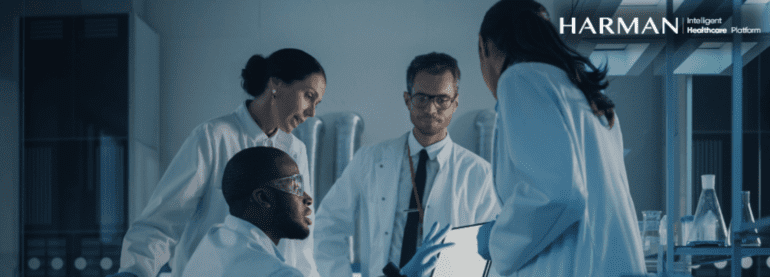- Healthcare faces challenges with inaccessible patient data, hindering collaboration and inflating costs.
- HealthGPT, leveraging generative AI, promises to unlock vast data repositories, enabling faster and more informed decision-making.
- Private LLMs like HealthGPT offer superior performance and security compared to their public counterparts.
- Responsible AI principles underpin HealthGPT, ensuring reliability and ethical use of data.
- HealthGPT transcends barriers across healthcare domains, benefiting stakeholders from manufacturers to patients.
- Integration of AI, exemplified by HealthGPT, heralds a paradigm shift in healthcare towards personalized, efficient, and data-driven care.
Main AI News:
The healthcare sector has undergone a digital revolution, amassing vast troves of patient data. Yet, a stark reality looms: up to 90% of this data remains inaccessible, locked in disparate silos. Such fragmentation breeds inefficiencies, hampering collaboration and inflating costs. For patients and providers alike, this translates into limited access to critical information and suboptimal outcomes due to delayed diagnoses or treatment errors.
However, the advent of AI heralds a transformative shift.
Introducing Generative AI
“Generative AI holds the key to unlocking this data,” asserts Dr. Jai Ganesh, Chief Product Officer at HARMAN Digital Transformation Solutions. “HealthGPT harnesses generative AI to empower healthcare entities, from organizations to frontline clinicians, in delivering superior outcomes swiftly.”
HARMAN HealthGPT stands as a private, expansive language model (LLM) adept at processing and generating human-like language, drawing from extensive datasets. These LLMs promise to revolutionize patient care by empowering healthcare professionals to make more informed decisions.
Consider the Challenge of Sepsis
Sepsis claims a significant toll, responsible for 20% to 50% of annual hospital fatalities in the U.S. Yet, in a puzzling conundrum, clinicians fail to pinpoint its cause in 30% to 50% of cases. This uncertainty leaves them grappling with treatment decisions. Enter machine learning, which, bolstered by comprehensive genomics data, has proven instrumental. Researchers at esteemed institutions have achieved staggering success rates in identifying bacterial and viral sepsis cases, guiding clinicians towards optimal treatments.
Public vs. Private LLMs: A Distinction
Public LLMs, while potent, are trained on general data and may falter in healthcare’s intricate realm, lacking specialized vocabulary and domain knowledge. In contrast, HealthGPT, a private LLM, is meticulously crafted or adapted from existing models, leveraging an organization’s proprietary datasets. This grants healthcare leaders unparalleled control over performance, quality, and security, fostering tailored innovations at optimized costs.
Upholding Responsibility Amid AI’s Ascendancy
In the healthcare domain, AI’s ascent must be tempered by an unwavering commitment to data privacy and security. HealthGPT embodies the ethos of responsible AI, ensuring societal benefits while mitigating risks. Rigorous testing, including scrutiny for inaccuracies and hallucinations, underpins its reliability. Human oversight remains integral, epitomizing a “human in the loop” approach, with cross-functional teams comprising certified experts and medical professionals alongside data scientists.
Eradicating Healthcare Hurdles Through Data Prowess
Unlocking inaccessible data represents a watershed moment for healthcare, but HealthGPT transcends mere liberation, dismantling sector-specific barriers across various domains:
- Drug and Medical Equipment Manufacturers: Streamlining processes from target identification to regulatory clearance, HealthGPT expedites drug development and equipment deployment, slashing costs and timeframes.
- Health Insurance Providers: Armed with predictive analytics, HealthGPT facilitates risk assessment, enhances customer experiences, and combats fraud, revolutionizing insurance operations.
- Patients: Simplifying communication, aiding in preventive care, and bolstering patient engagement, HealthGPT fosters a more collaborative healthcare journey.
- Healthcare Providers: Empowering clinicians with real-time insights, aiding in decision-making, and optimizing operational workflows, HealthGPT epitomizes efficiency and efficacy.
Prescribing AI for a Progressive Healthcare Paradigm
Dr. Ganesh envisions a healthcare landscape ripe for AI-driven disruption, underlining the pivotal role of customization. HealthGPT’s current capabilities span diverse clinical domains, with future horizons encompassing precision medicine and disease prevention. As AI integration becomes ubiquitous, clinicians embracing these advancements stand poised for unprecedented strides in patient care.
Carlos de Paladella Salord, Director of Clinical Solutions at ELSEVIER Health, underscores the imperative of AI integration for healthcare professionals, heralding a transformative era.
With LLMs at the vanguard of healthcare data utilization, individuals gain newfound autonomy in managing their health, foreshadowing a future replete with self-service medicine and heightened healthcare convenience. As AI charts a course toward progress in healthcare, the promise of enhanced diagnostics, personalized treatments, and streamlined healthcare delivery systems beckons.
Conclusion:
The emergence of AI, epitomized by HARMAN’s HealthGPT, heralds a transformative era in healthcare. As organizations embrace these advancements, they stand poised to unlock unprecedented efficiencies, improve patient care, and drive innovation in the healthcare market. Companies that leverage AI technologies effectively will gain a competitive edge, redefining standards of care and shaping the future landscape of the industry.

